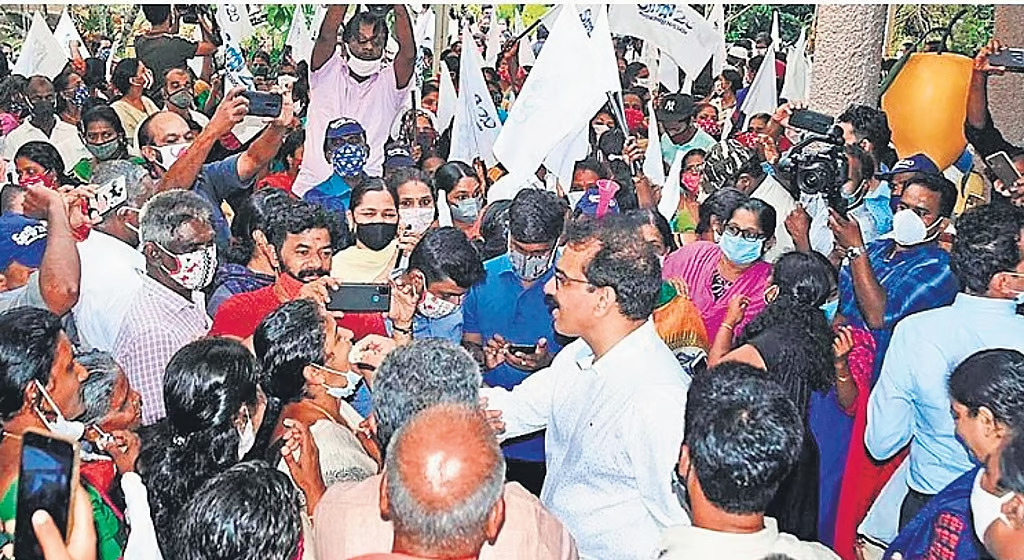CPPR in the News

Degrees That Don’t Pay: Is Theory Without Skills Failing Our Youth?
November 14, 2025
D Dhanuraj of CPPR on Manorama News: Insights on Bihar Elections 2025
November 18, 2025D Dhanuraj of CPPR comments in TNIE on Twenty20’s Plans to Contest Local Body Elections
The corporate-backed entity is eager to shed its image as a disruptor in and around Kizhakkambalam and expand its reach, but political observers are downplaying its chances.

Twenty20 has announced plans to contest in 55 local bodies, including key municipalities such as Maradu, Tripunithura, and Thrikkakara, as well as the Kochi corporation.
When Twenty20 swept 17 of 19 seats in Kizhakkambalam grama panchayat in 2015 – barely two years after its formation – it was seen as a political anomaly. This corporate-backed civic experiment had unexpectedly evolved into a hyperlocal movement.
Its subsidised Bhakshya Suraksha Market, welfare and infrastructure interventions, and the much-discussed ‘God’s villas’ seemed to signal a new model of local governance, one that voters rewarded again in 2020.
That election also marked the party’s first major expansion: it retained Kizhakkambalam and extended influence to three neighbouring panchayats – Aikaranad, Mazhuvannoor, and Kunnathunad. Now, a decade into its dramatic entry, Twenty20 is attempting its most ambitious leap yet.
The party has announced plans to contest in 55 local bodies, including key municipalities such as Maradu, Tripunithura, and Thrikkakara, as well as Kochi corporation. The pitch is clear: Positioning itself as the alternative for voters tired of the traditional UDF-LDF binary.
D Dhanuraj, Chairman of Centre for Public Policy Research (CPPR), shared his insights with The New Indian Express (TNIE) on the issue, outlining how expansion beyond a local cluster requires the organisational muscle of alliances.
“In Kunnathunad and nearby areas, Twenty20 can operate independently. But to win assembly or Lok Sabha seats, you need a strong institutional framework, clear policies, and committed cadre. That is a continuous and long-term process,”
he is quoted as saying.
Dhanuraj also remarked that Twenty20’s possible pan-Kerala presence remains unlikely, observing that the party’s influence is heavily concentrated.
“People in panchayats around Kizhakkambalam may elect them. But building presence in districts where they have no history or local grounding is an entirely different challenge,”
Read the full article by The New Indian Express here.
Views expressed by the author are personal and need not reflect or represent the views of the Centre for Public Policy Research.

